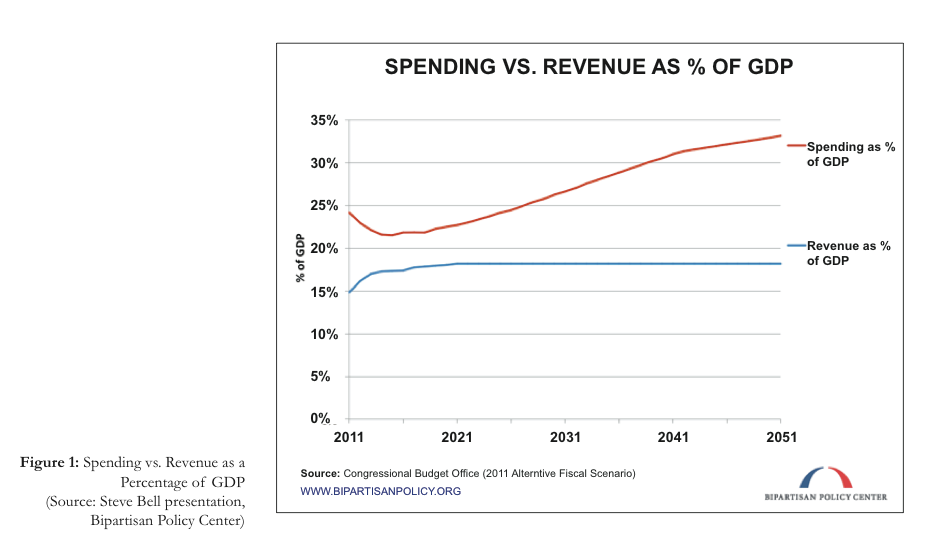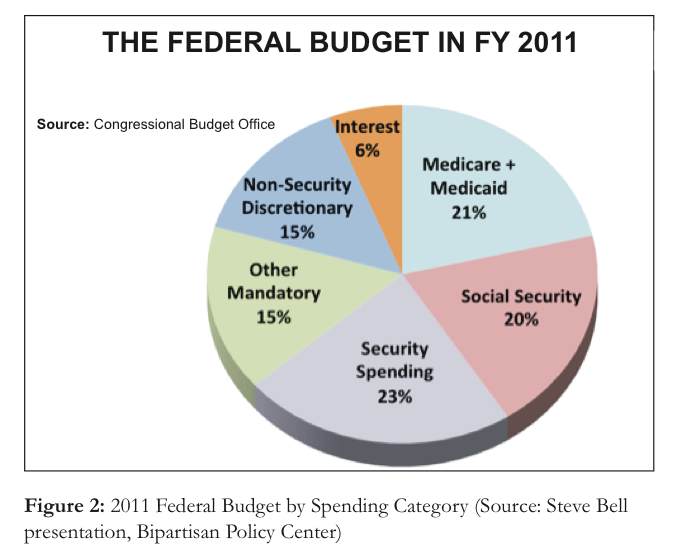ENO CENTER FOR TRANSPORTATION
Introduction
The need to cut our national debt and annual budget deficits is likely to be a force in policy considerations for many years to come. The Congressional Budget Office’s January 2012 Budget and Economic Outlook projects a $1.1 trillion federal budget deficit for fiscal year 2012, assuming current laws remain unchanged.
In recent years the federal government has posted record deficits, with the deficit’s share of the gross domestic product the highest since World War II. As the economy slowly recovers, there is likely to be increasing pressure on Congress and the President to tackle the growing levels of debt.
At the same time our national transportation infrastructure is in need of substantial investment. The backbone of the surface transportation network, the Interstate Highway System, is reaching the end of its useful life and much of it will have to be reconstructed in the next decade. According to the American Society of Civil Engineers, more than 26 percent of our nation’s bridges are structurally deficient or functionally obsolete. Our Air Traffic Control system is reliant on technologies and polices developed over 60 years ago. And while gas prices are rising and more American are seeking alternative modes of transport, our mass transit and intercity rail systems are struggling to keep a state of good repair, let alone expand to meet the needs of the future.
Federal transportation programs are caught in the middle of these two issues. For the first time in decades, both decreasing revenues and increasing demands are straining existing funding structures. Recent attempts in Congress to raise revenues for the existing transportation programs have been desperate attempts to find outside offsets, with no appetite to increase existing taxes and fees. It appears that the current debt crisis will linger for years while the United States works to repay its debts in a slow economic recovery, limiting government resources in all areas.
On the other hand, transportation investment can be considered as a component of reducing the national debt – effective spending on transportation can provide short-term job creation and long-term economic growth, which in turn produces greater tax revenues and reduces future investment needs. In order to position itself effectively for increased funding from the federal government in this fiscal environment, the transportation community needs to make the case for investment within the greater context of deficit reduction.
In order to shape and contribute to this conversation, the Eno Center for Transportation held its 2011 Policy Forum titled Transportation Investment as Part of a Deficit-Reduction Package on November 16, 2011, at George Mason University in Arlington, Va. The forum convened expert panelists in the transportation field in a series of interactive sessions with forum attendees. This paper summarizes the context of the federal deficit, the existing funding structures for the federal programs, and the key points and lessons learned from the Policy Forum by drawing from the experience and insights of panelists and other resources.
Read Full report (PDF) here: Transportation Investment as Part of a Deficit-Reduction Package
About Eno Center for Transportation
www.enotrans.com
“The Eno Transportation Foundation is a neutral, non-partisan think-tank that promotes policy innovation and provides professional development opportunities across the career span of transportation professionals.”
Tags: deficit, Eno Center for Transportation, transportation








 RSS Feed
RSS Feed